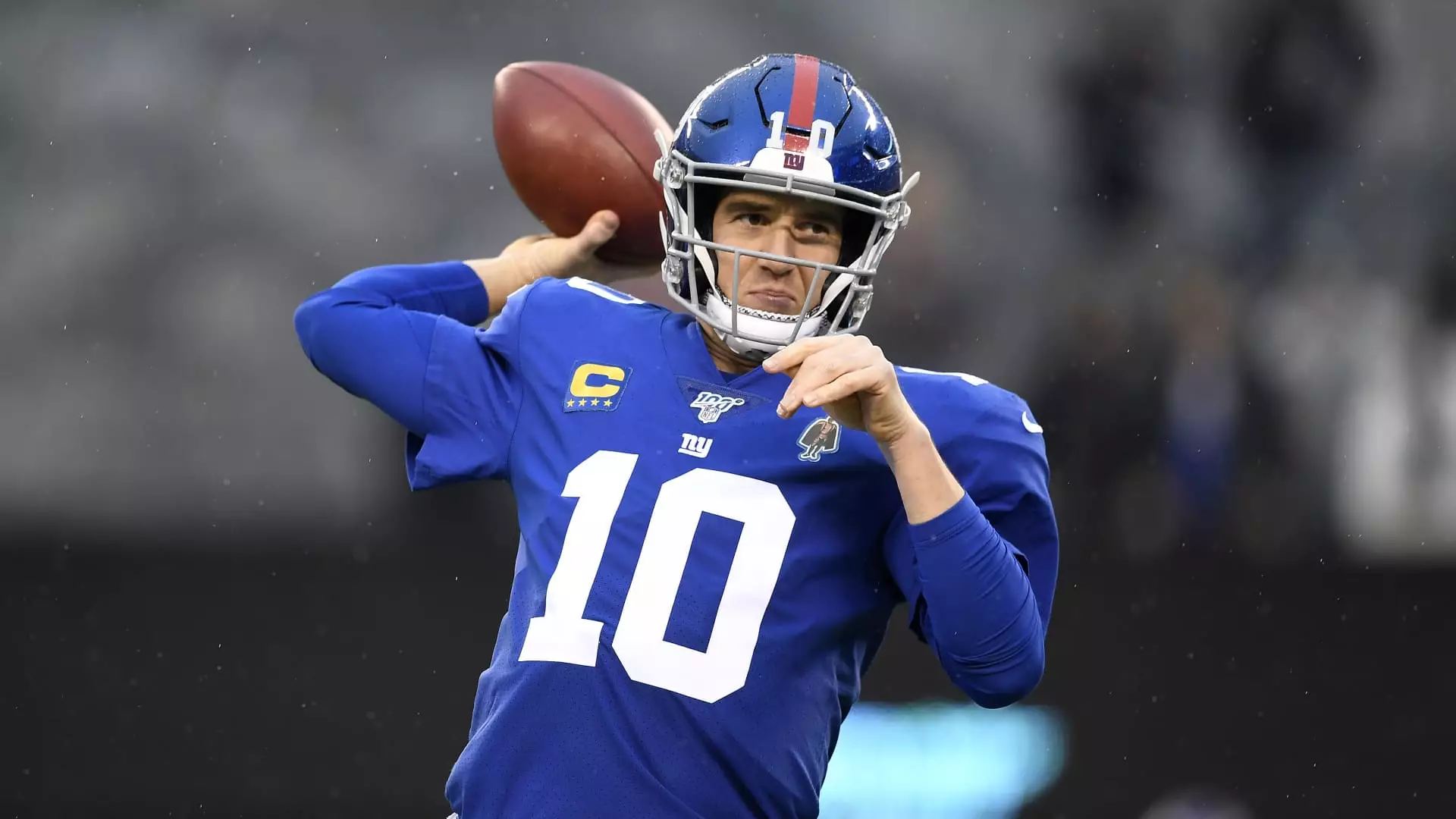The rising valuations of NFL franchises paint a picture of an unrivaled sports industry bubble — one that even legendary figures like Eli Manning find increasingly inaccessible. Manning, once a titan on the gridiron, openly admits that the cost climate has become prohibitive for him to acquire a minority stake in the New York Giants. His comments expose a pivotal truth: the astronomical escalation in franchise values distorts the accessibility for former players or middle-tier investors, elevating the status quo beyond reasonable reach. This isn’t just about numbers; it signals a market that is losing touch with the economic realities of the average investor and even seasoned sports icons. As valuations soar, the notion that NFL teams are still feasible investment targets for a broader demographic becomes increasingly implausible, preferring instead to serve as playgrounds for the ultra-wealthy or institutional investors.
The Commercialization of Nostalgia and Market Speculation
The hyperinflation in franchise valuations doesn’t merely reflect the profitability and popularity of NFL teams but is often driven by relentless market speculation and corporate interests. The Giants, pegged at nearly $8 billion in recent evaluations, are now valued at around $10 billion — a figure Manning agrees with but admits is prohibitively expensive. This disconnect between perceived worth and real, tangible return-on-investment raises concerns. These valuations seem more motivated by a desire for market dominance and branding opportunities than realistic financial fundamentals. The wholesale commercialization of sports, especially through high-stakes minority investments, underscores a broader pattern of turning sports franchises into commodities rather than community assets. This shift not only alienates former players like Manning but also undermines the authentic connection fans historically associated with the team.
Structural Inequality and the Erosion of Genuine Fan Ownership
The fact that NFL entities are becoming increasingly inaccessible to all but the wealthiest underscores a troubling trend: the erosion of the communal ownership model that once rooted sports teams in local communities. Manning’s inability to buy in is symbolic of a widening gap between ownership and fans, turning what was once a collective institution into an expensive luxury. The NFL’s recent decision to allow private equity investments of up to 10% further exacerbates this divide, effectively turning franchises into financial assets rather than community-centric institutions. If only the billionaire class can afford to wield influence, the essence of sports as a unifying bond diminishes, risking detachment from the grassroots supporters who have kept these teams alive for generations.
The Hidden Costs of Investment: Conflicts and Compromised Integrity
Manning’s candid admission about his declining interest also exposes the complex web of conflicts that arise when sports icons seek financial involvement in their former teams. His reluctance to buy a stake due to potential conflicts with his current roles, such as co-hosting a popular NFL program, highlights the delicate balance between personal ambitions and maintaining credibility. Such conflicts of interest threaten to undermine transparency and dilute the authenticity of sports commentary, which is supposed to be rooted in genuine passion rather than financial engineering. Moreover, Manning’s status as a seasoned professional, with earnings exceeding $250 million, does not shield him from the economic realities but instead underscores the exclusivity of wealth and influence that characterize modern NFL ownership—creating an environment where true fans and former athletes alike are priced out of participation.
The Future of NFL Ownership: A Consolidated Arena for the Wealthy Elite
The trajectory of NFL franchise valuations suggests that the league is shifting toward a closed shop, monopolized by billionaire investors and private equity firms rather than everyday sports enthusiasts or former players. The involvement of high-profile investors like Julia Koch and billionaire partners hint at an increasingly aristocratic ownership landscape where sports teams serve as investment vehicles rather than community symbols. Manning’s decision not to pursue a stake is emblematic of a wider malaise: the game remains popular, but access is becoming increasingly restricted, turning the NFL into an elite social club that few can join. Unless meaningful reforms or caps on valuations are introduced, the foundational spirit of shared fandom and ownership risks being overshadowed by a financial oligarchy dictating the future of American football.

